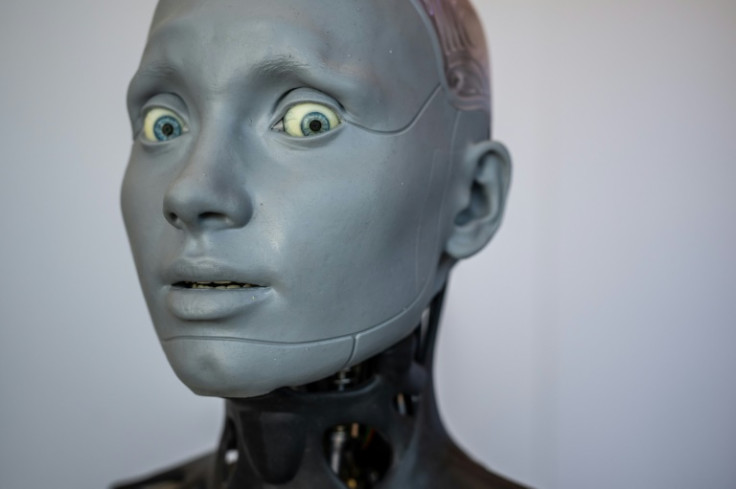AI experts believe the technology 'will bring some significant changes' accompanied by 'some challenges'
Yesterday, leading figures from the world of artificial intelligence met in Derry to discuss the impact of the technology on education.

Yesterday, leading figures from the world of artificial intelligence (AI) met in Derry to discuss the impact of the technology on education.
Held at the Londonderry campus of Ulster University, the conference was hosted by the School of Computing, Engineering and Intelligent Systems.
Scheduled to last three days, it will focus on both the challenges and opportunities AI presents to the education industry.
Speakers at the event on Monday included Sue Attewell, who is a co-leader of the National Centre for AI in tertiary education and Dr Cris Bloomfield, a senior industry architect with Microsoft.
The experts generally agreed on the potential for AI to have significant benefits for people working in coding and digital design, as well as, more widely, the education industry as a whole.
Professor Colin Turner from Ulster University's Faculty of Computing, Engineering and the Built Environment, said the future of AI will present both challenges and opportunities.
"I think like a lot of technological changes, like for example the world wide web, it [AI] will bring some significant changes and some of those will provide some challenges, but there will be a lot of opportunities as well," Turner told BBC Radio Foyle's North West Today programme.
"The purpose of this summit is to make sure that we are off quickly into that proper, full-blown, honest conversation about those challenges, about the ethical considerations, and making sure that we get the benefit for our students, but also for the industry in the north-west and beyond."
Echoing this sentiment, Prime Minister Rishi Sunak spoke of the potential for AI to provide "personalised learning" to schoolchildren at London Tech Week earlier this year.
He said education was one of the public services he was most excited about AI's potential to transform, adding the technology could "reduce teachers' workloads" by assisting with lesson planning and marking.
However, experts have advised caution about rushing forward with the implementation of AI into the industry.
"Our responsibility as a university is to ensure that our research and our curriculum at the Derry/Londonderry campus helps to prepare industry...so that it's not a seismic shock and we are with the front of the wave rather than pushed along at force," Turner said.
Despite expressing optimism at the potential for AI to benefit the education sector, Sunak also stressed the UK would lead on "guard rails" to limit its dangers, signalling that the government may seek to adopt a more wary approach to the development of the technology.
In a recent open letter, which included signatures from the likes of Tesla CEO Elon Musk and Apple co-founder Steve Wozniak, concerned researchers advocated for a six-month suspension on AI development to give companies and regulators time to formulate safeguards to protect society from potential risks of the technology.
It warned that in the longer term, there was a genuine risk the technology could lead to the extinction of humanity.

The application of artificial technology first rose to mainstream prominence with the development of ChatGPT, released at the end of November last year.
Owned and developed by the AI research and deployment company, OpenAI, ChatGPT is an artificial intelligence chatbot trained to follow instructions and provide a detailed response.
According to the latest available data, ChatGPT currently has over 100 million users, and the website generates one billion visitors per month.
But in March, Italy announced it was temporarily blocking ChatGPT over data privacy concerns, the first Western country to take such action against the popular artificial intelligence chatbot.
Fears over the rapid development of artificial intelligence systems even prompted billionaire Tesla and Twitter boss Elon Musk to join hundreds of experts in expressing concern at the advancement of powerful AI systems.
At the Derry conference, the use of 'Generative AI' was also discussed.
Generative AI is defined as applications typically built using foundation models. These models contain expansive artificial neural networks inspired by the billions of neurons connected in the human brain.
Foundation models are part of what is called deep learning, a term that alludes to the many deep layers within neural networks. Deep learning has powered many of the recent advances in AI, but the foundation models powering generative AI applications are a step-change evolution within deep learning.
Michael Callaghan, Conference chair and Reader in the School said: "Generative AI offers unprecedented opportunities and challenges for transformation in education which we must navigate carefully."
A series of keynotes, talks, discussion panels, hands-on workshops, demonstrations and networking events with leading academics, researchers and industry experts in this area are scheduled as part of the conference.
Last month, McKinsey & Company, a global management consulting firm, released a document outlining the potential for Generative AI to transform the global economy.
According to the report, generative AI could add the equivalent of $2.6 trillion to $4.4 trillion annually across the 63 use cases analysed by McKinsey – by comparison, the United Kingdom's entire GDP in 2021 was $3.1 trillion.
© Copyright IBTimes 2024. All rights reserved.






